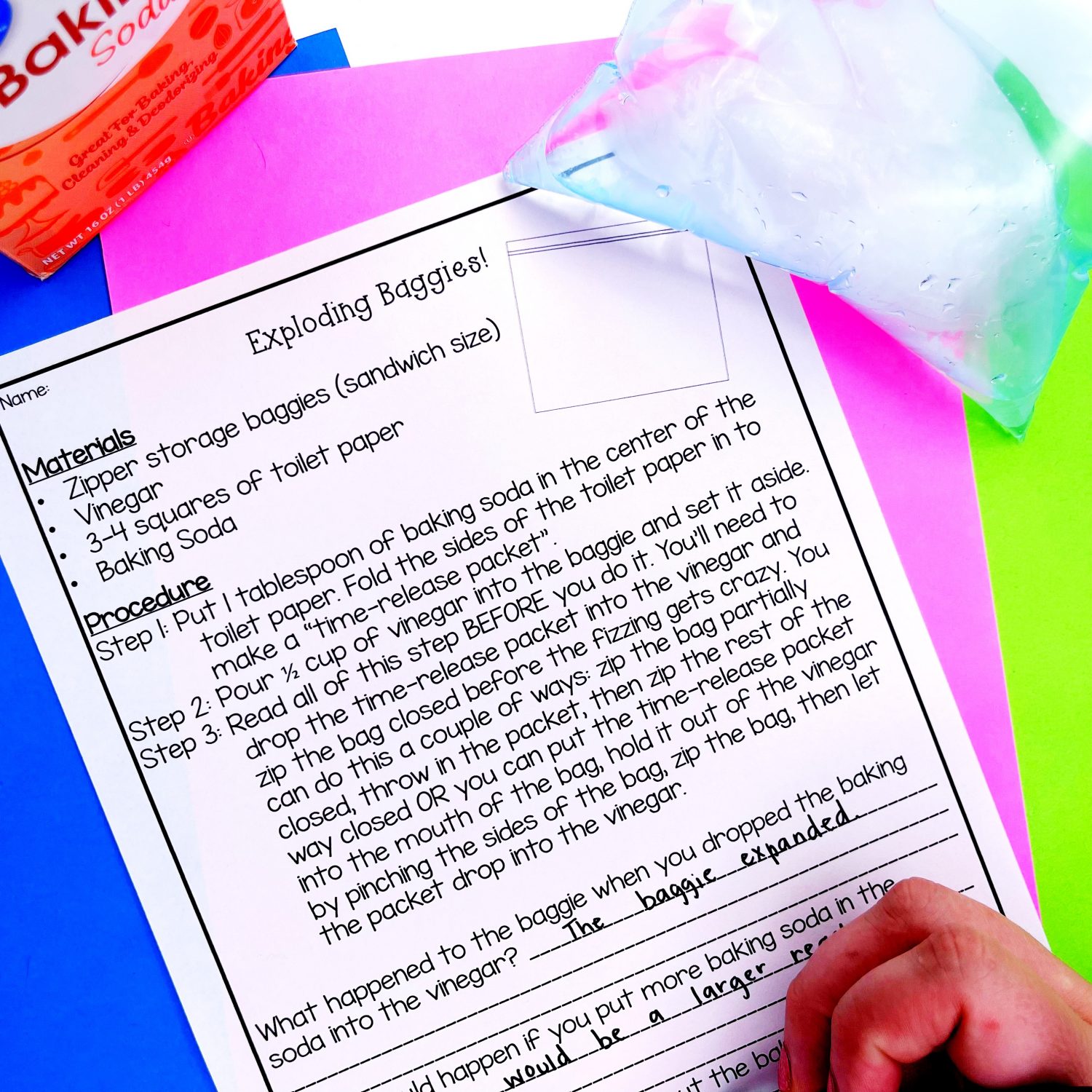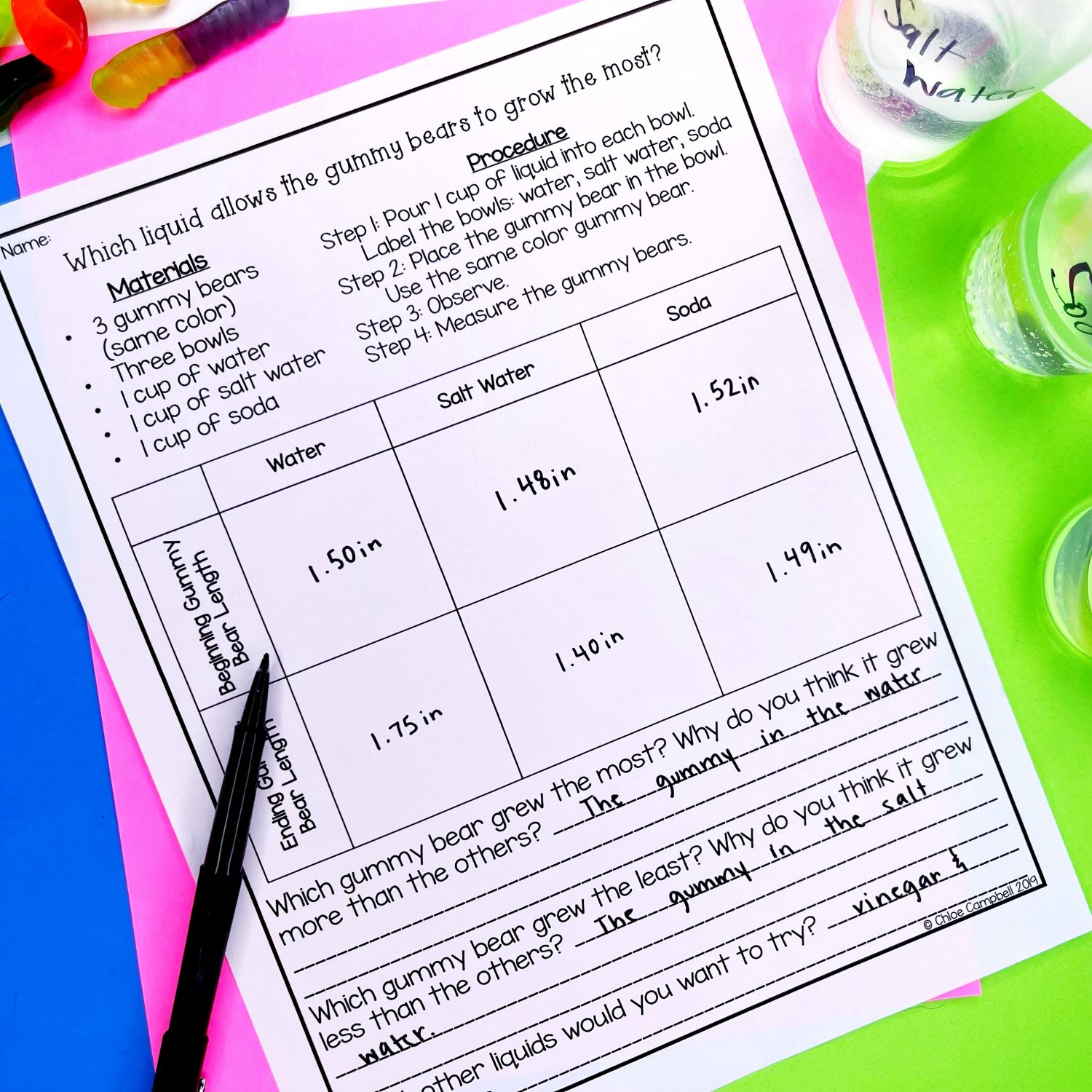Many teachers shy away from science. There is so much information in each unit, and many schools do not give teachers the time to dive into their science curriculums. Not being able to dig deeper into the units or look at them for an extended period of time means teachers can not become familiar with each lesson. That is why I decided to make post #4 in my science series all about teaching science and how to teach science effectively.

8 Tips For Teaching Science and How to Teach Science Effectively
Here are some tips I always share with new and veteran teachers. I use these when I sit down and to plan science units or implement a curriculum bought by the district.
Tip #1: Look at Your Science Teaching Methods
When you are sitting down and trying to figure out how to teach science effectively, ask yourself a few questions. What methods do your students find compelling when you are teaching? Maybe you engage students with group work, or they would rather be hands-on when learning. What teaching strategies or techniques could I use to teach this science unit? Looking at different techniques to teach science will allow you to really figure out what will work in your classroom. You may have to make minor adjustments each year, but having some “go to” strategies in your back pocket is really important.
Tip #2: Science Professional Development
Look for professional development opportunities for science. Many science programs offer some training on their product through a digital platform or in-person for your school. It is important to understand what you are teaching. If you are creating the curriculum using science standards, take time to read and understand the standard. Many schools are moving to standards based learning so that you may be familiar with the process. Look for places where you may be able to research the standards more and gain more insight into each one. *Teacher tip: if you teach in the state of Florida (other states probably have this, too!), look up the Test Specifications – it includes every standard, whats included, what’s not included, etc
Tip #3: Effective Science Experiments
I mentioned this in series #3. You need to decide which science activities will be hands-on, which activities will be mostly reading, and what activities you will be demonstrating. If you choose, “oh, this definitely has to be a hands-on experiment!” Please, please, please make sure to try the experiment yourself FIRST!
The last thing you need is to figure out the directions while 18-25 sets of eyes are watching. Plus, if it doesn’t work for you the first time, you will have time to figure out why. You’ll then be able to try it one more time before having your students try. If you decide it should be a demonstration, complete the same process. You don’t want the demo to be a dud. (If it ends up not working in front of your students, tell them, “Well, this is sometimes how science works!” and see if you can problem solve as a class.
Tip #4: Use Small Groupings
As science teachers, you want to be able to let your students develop their hypotheses, data, etc. By keeping the lab groups small, you allow every student to have a say and part in the experiment. If the grouping is too big, some students may not be able to participate fully. We all have leaders in our classroom who sometimes like to take things over. They keep other students from being able to show off their full potential. I have testing groups of 5, 4, 3, and 2. I tend to stick to student group sizes of 2-3 during science activities. You never want to give a student an opportunity to be hands-off or not engaged. Keeping small group sizes means everyone has an important role in the activity.
Tip #5: Evaluations
This may be more effective and useful in upper elementary or middle school classrooms. However, it goes right along with small grouping, so I wanted to mention it! Having students fill out a partner evaluation or group evaluation is a great way to hold students accountable. Students often need to know precisely what they should be doing, and giving them a rubric will help. Plus, students want their peers to see them as helpful and useful while working with groups and partnerships.
Tip #6: Student Recording Sheets
We always want students to be responsible for their own learning, and this means we want them to track their data, create their graphs, or write their answers down. Using student recording sheets will hold students accountable for the experiment and the data they need to collect conclusions. Student recording sheets are important when figuring out how to teach science effectively.
If they are not responsible for some type of task, students will not pay close enough attention to the experiment.
Tips #7: Science Learning Materials
As a new science teacher you may be unsure of what materials you need in your science classroom. I suggest looking at science series #2. This post is where I have put together a list of science materials and overall classroom materials that are helpful. Having the learning materials students need out and ready to go before starting any activity or experiment is important. If you are scrambling and looking for different things, you are wasting time. Your students will not get the best experience!
Tip #8: A Grab and Go Station
My final tip is to have a grab-and-go station in your room. This station may be a place where you have simple supplies like paper towels, baggies, plastic cups, and any materials students may need in multiple experiments and lessons throughout the year. This station allows teachers to keep teaching without being interrupted by students who may need a very generic piece of material. I promise this station will save you a lot of time and headaches! To keep control of your Grab and Go station, give specific times of it being “open” and “closed”. For example, students should not be at the Grab and Go station during a time of reading a scientific text. It seems like common sense for us, but students often need the specific “open” and “closed” examples for the grab and go station.
Tips On How to Teach Science Effectively
I am no expert in lower, upper elementary, or middle school science. But I have found these tips to be extremely helpful. When it comes to planning science education lessons and teaching them use these tips! Remember, teachers teach in their own ways. What works for me may not always work for you, and THAT’S OK!
Don’t forget to read the other posts in my Science Series:
Science Classroom Supplies List





Thanks for your help